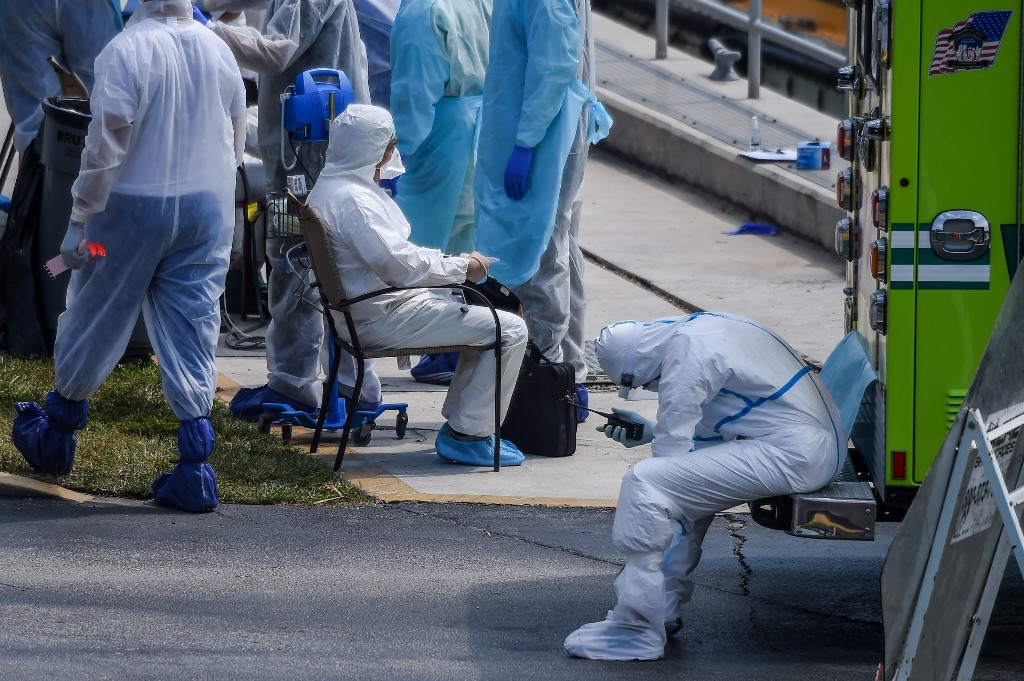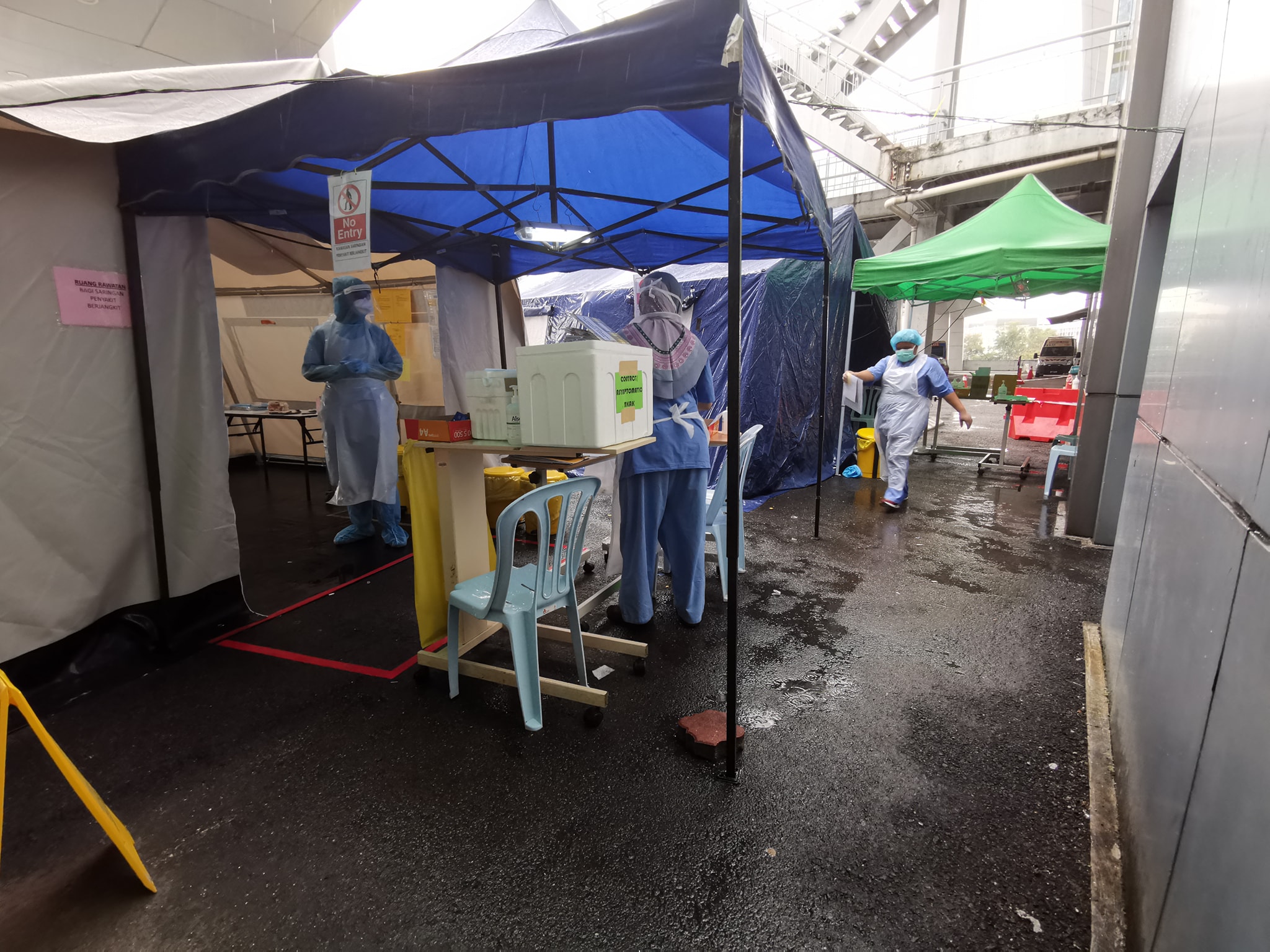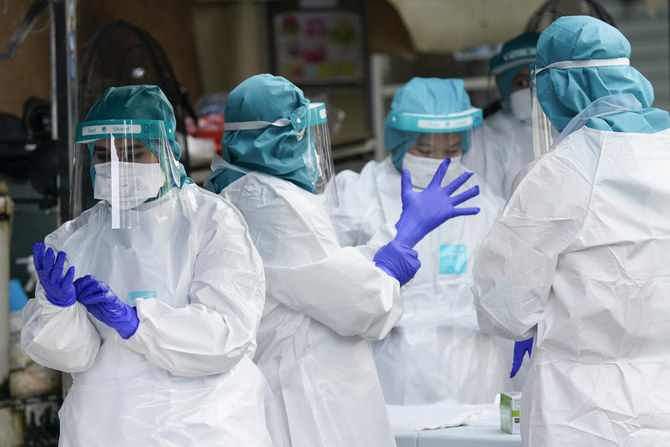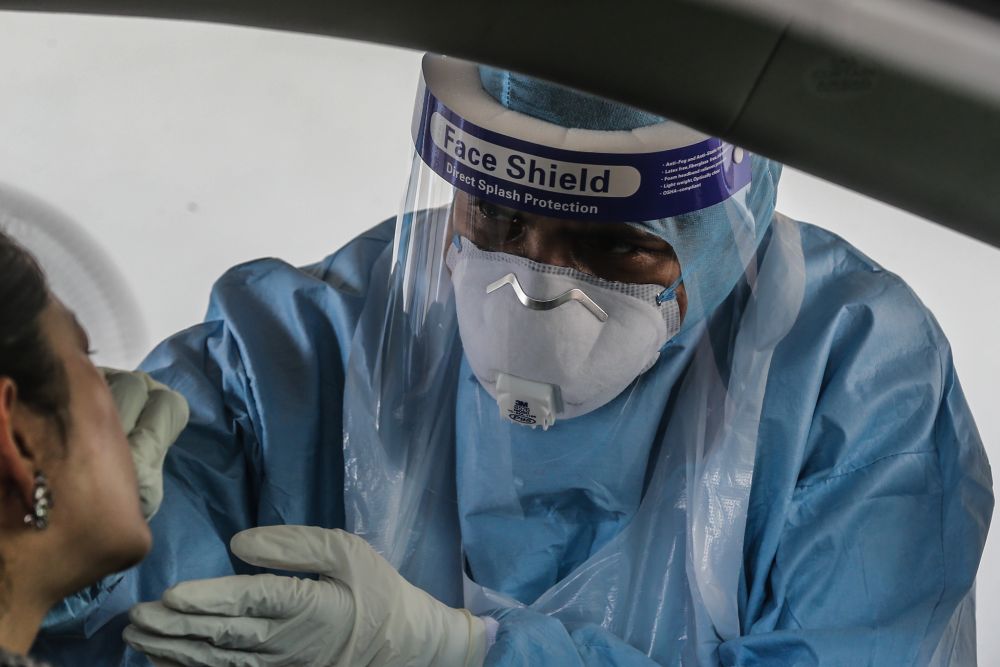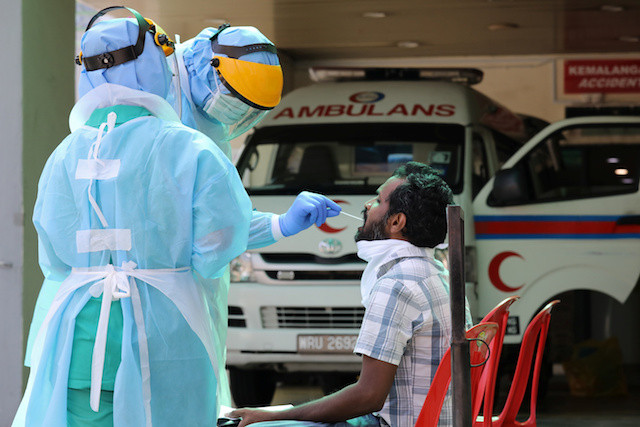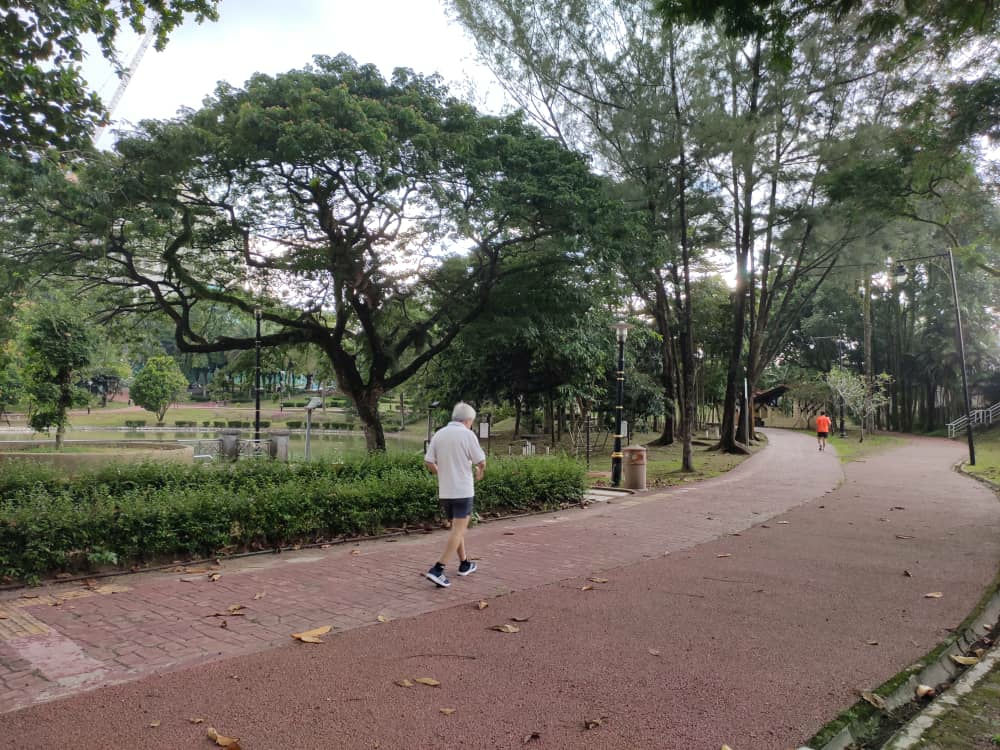7 Questions We Asked Malaysian Frontliners About CMCO
Are the numbers even accurate?
With the Conditional Movement Control Order (CMCO) in place, Malaysians have been urged to get used to this new norm
Social distancing and going out only when necessary are just some of the requirements during this time.
But what is it really like for those on the front lines right now?
We talked to two Malaysian medical officers, who have been dealing directly with COVID-19 patients for the past few months, to find out their thoughts on CMCO:
SAYS: You mentioned you've had 35-hour long shifts. How are you holding up?
Dr Asha*: I'm doing pretty okay personally. Wish I could work from home though. Besides that, I'm really frustrated and disappointed at how selfish some people are in this pandemic, such as having no regard for other people's safety, travelling despite knowing to be a PUI (Patient Under Investigation), etc to list a few.
Also extremely angry at the lack of proper critical thinking in some of the general public when faced with false information they get from unreliable sources.
Dr Tim*: All of us are exhausted. Working from beginning till now. Although there has been an increase in the number of wards, it is still the same number of medical force. It's especially tiring during the on-call period because it's difficult to separate coverage... So it means more on-calls per person.
SAYS: From your first-hand experience, would you say that the COVID-19 numbers announced in the news every day reflect the actual numbers?
Dr Asha: It's accurate in terms of results obtained from tests conducted. But inaccurate when it comes to the whole picture, as we aren't testing as many as we would like to as a whole country due to many reasons - mainly funds and lack of kits.
Dr Tim: The numbers announced are not exact and reflect how aggressive the screening process is. For example, in Singapore, they screen almost everyone. There was a sudden spike. It was proportional to how many people they screened.
In other words, if we screen more aggressively in Malaysia, the numbers will definitely be higher.
SAYS: Is there still a lack of supplies in hospitals?
Dr Asha: The supplies come sporadically. We need a steady flow of supplies DAILY - with no hiccups in between. There are some days we completely run out of N95 masks, PPEs, shields, etc. This greatly impairs our ability to do our job properly even if it is a lack of only four hours, the effect is drastic.
Dr Tim: Supplies wise, we are running low. But for now, we have enough to use. Surgical masks especially. We're advised to use only one mask a day - which isn't ideal.
SAYS: Are we testing sufficiently or do we budget because of the limited amount of test kits?
Dr Asha: We have to prioritise and screen those who need the test more. In an ideal situation, [Health Care Waste] HCW shouldn't be budgeted. And people should not be turned away when they want to be tested.
Dr Tim: Sufficient screening is also not really happening. Ideally, if there's a new cluster, we have to access the whole area and screen every single person who was in contact with the PUI.
What we do now is only contact trace and screen the direct contacts. But not indirect contacts due to the lack of supplies and medical force.
SAYS: With the new CMCO rules, are the regulations too loose based on what you see on a daily basis?
Dr Asha: ABSOLUTELY. Right now it's not about if the number of cases will increase. But a matter of WHEN.
I do hope I am dead wrong about this because I really miss the freedom we had before this pandemic. But I'm not hopeful about that.
Dr Tim: Regulations are too loose in my opinion. I understand that the government has to find a balance to make sure the economy is healthy as well. And it's good that they are putting in SOPs. But it comes down to whether or not the SOPs are being enforced efficiently.
SAYS: How do you feel about temperature checks being done around the country?
Dr Asha: There are two sides to this. One, I feel it's good as it gives off a sense of security to both the vendor and the customer (e.g. in a shopping complex, etc) and it's also able to catch anyone with a fever.
The truth is, a person can be asymptomatic but still carrying the virus and it will go undetected while passing it to those around and items they have touched. Let's be honest, in no apparent way can every single item be cleaned and disinfected thoroughly. It's just impossible.
Dr Tim: There is also a risk of numbers coming back up because there's no baseline to confirm cases. People with no symptoms can also have COVID-19. Having a fever is just one of the known COVID-19 symptoms. However, if you have no fever, it doesn't necessarily mean that you are free of COVID-19.
So even temperature scanning poses an issue because it doesn't necessarily mean that you are virus-free. Queues to test people's temperature are not enough and in some ways, social distancing might bring more harm than good if people don't comply and stand less than a metre away from each other.
If you want to carry out temperature scanning, make sure your building has enough space for social distancing.
SAYS: As of today, what should daily life really look like for the rest of us?
Dr Asha: Well nobody can stay at home and not go out forever. So if you must, go with risks involved in mind. Weigh your options and also the risks and benefits of stepping out of your house.
I know a lot of people have been letting their guard down. This isn't a good sign. I still feel you should limit the number of times you get out of the house. There is no better way to stop this spread than by doing proper personal hygiene and social distancing/isolation.
Be mindful of your surroundings and always take note of the impact you can bring to the high-risk groups around you. Don't be selfish.
Dr Tim: We have to get used to the new norm, such as practising social distancing and washing your hands regularly - until a vaccine is found. Creating a vaccine will take time because a successful one needs to cover all strains of the virus. It might take two to five years to discover that.
When you're jogging outside or playing aggressive sports, you are breathing in rapidly and that might pose a higher risk because the virus' mode of transmission has yet to be confirmed.
It could be airborne. So it's best to just avoid these sorts of activities completely until we have found a vaccine.

